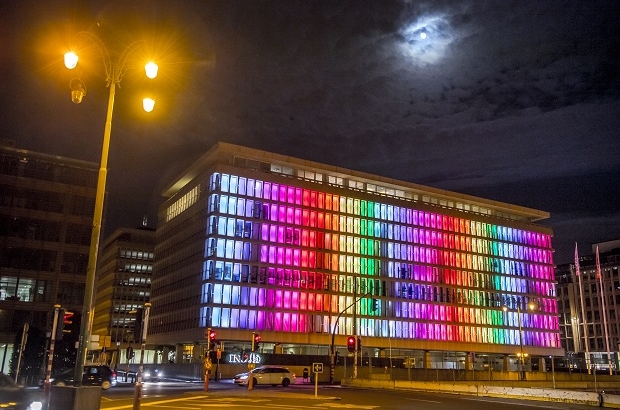- Daily & Weekly newsletters
- Buy & download The Bulletin
- Comment on our articles
‘Many still feel unsafe’: Belgium gets serious about LGBTQ+ acceptance
Belgium’s federal government has adopted 133 measures for a more LGBTQ+ friendly country, including a ban on conversion therapies and non-consensual operations on intersex children.
Prime minister Alexander De Croo and secretary of state for gender equality and opportunities Sarah Schlitz presented the new federal plan, which runs until 2024. They highlighted that its implementation makes Belgium the third European country and the fifth in the world to formally ban conversion therapy.
Conversion therapy refers to various practices intended to “cure” people of homosexuality, implying that it is a disease that can and should be clinically treated.
“Love is love. Everyone should be able to be themselves, regardless of their sexual or gender orientation,” De Croo said at the press conference unveiling the reforms. “However, many still feel physically and mentally unsafe.”
Developed in collaboration with civil society and 10 ministers and secretaries of state, the 133-measure plan aims to strengthen the safety of lesbian, gay, bisexual, transgender, queer, intersex and asexual people, along with anyone who does not identify with heterosexual and cisgender norms, in an effort to move towards greater inclusiveness.
Divided into four strategic axes (knowledge and information, inclusion policy, well-being and health and anti-discrimination), the plan is being implemented within the ministries of Justice, Interior, Foreign Affairs, Development Cooperation, Civil Service, Asylum and Migration, Equal Opportunities, Mobility, Health and Labour.
“It’s a collective effort for a subject that is widely included in our policy,” De Croo emphasised.
In addition to a blanket ban on conversion therapy, the federal government intends to prohibit unnecessary and non-consensual operations on intersex children and to improve access to health care for LGBTQIA+ people, which is still hampered by a mistrust of and discomfort with the medical profession, as well as by the lack of knowledge of health care staff towards this particular patient group.
“Belgium is doing well, but it could do even better,” said Anna Devroye, coordinator of Prisme, the Walloon federation of LGBTQ+ associations.
Other measures include a stricter approach to hate crimes and hate speech against LGBTQ+ people, including codifying the motive of hate as an aggravating factor in all crimes in the Criminal Code.
The threshold for reporting crimes will also be eliminated, and the government wants to strengthen the role of the UNIA equal opportunities centre so that complaints about sexual discrimination can be dealt with more efficiently.
“Belgium is one of the few countries where homosexuality has never been criminalised. We have always been among the most progressive countries in this area,” De Croo said. “But it is an eternal struggle, the work is never over.”


















